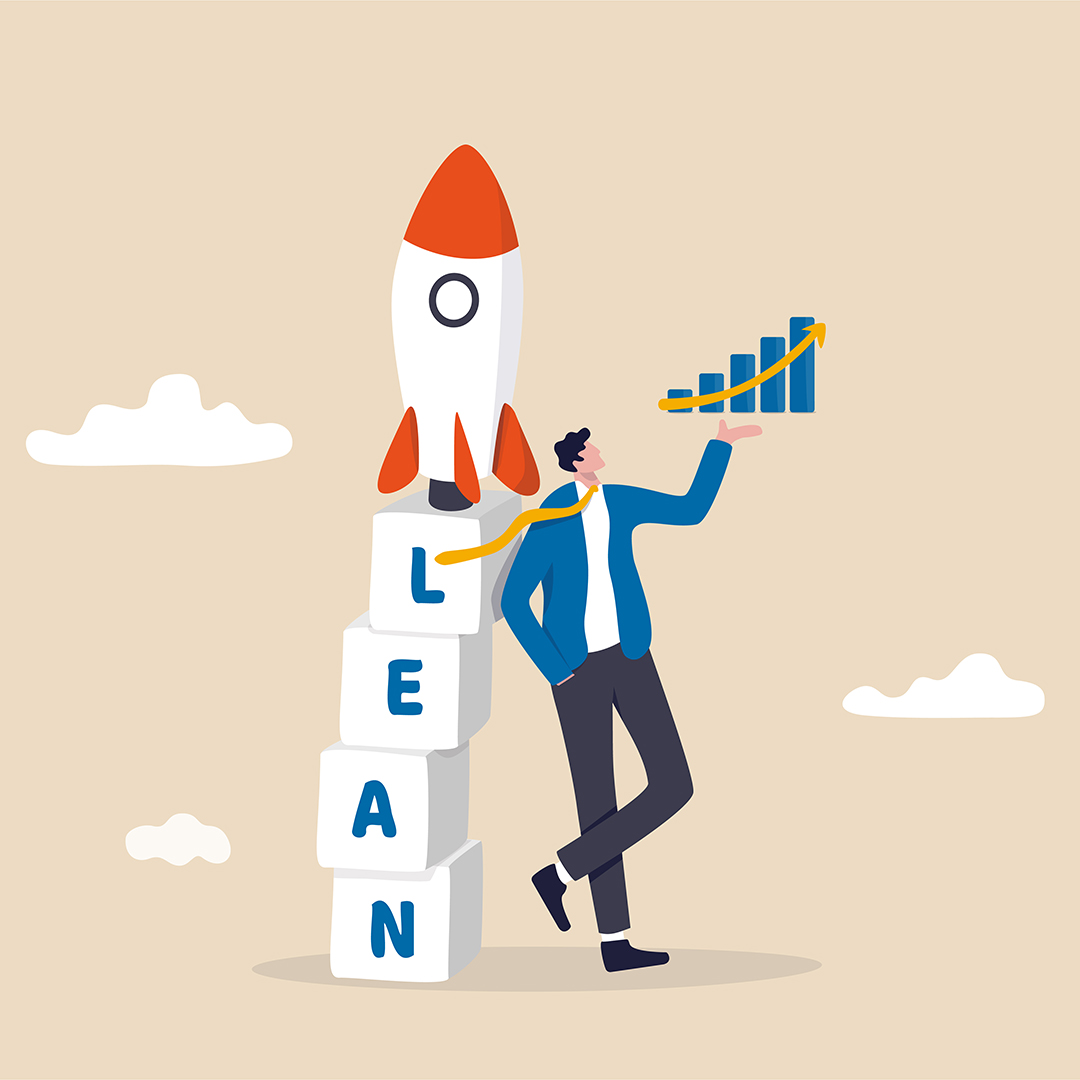The lean startup methodology is a method of managing and building a business or startup by conducting tests on the results of which product manufacturing is based. It provides a scientific approach to creating and managing medical device start-ups and manages to optimise product development times. It is a principled approach to new medical device development.
The main goals of the lean philosophy are to reduce a company’s costs as much as possible by avoiding waste and to increase profitability by giving more value to the products and services developed.
The medical device lean startup methodology is used to develop products and companies in a short period of time, during which the creator of the product or business can see if their business is viable. With the lean startup methodology, the med-tech start-up using it will focus on developing a product while gaining customer feedback. It then proceeds to release a minimum viable product to the market or a small subset of your customers.
Using the lean startup methodology, new startups can achieve success without requiring large amounts of funding, comprehensive business plans, or a product that has no flaws.
The main characteristics of a lean startup are:
- Takes into account the desires of the market to develop a product
- Determines customer interest through validated learning
- Focuses on metrics such as product popularity and customer lifetime value
- Provides customers with a minimum viable product to gauge their reaction in advance
- Encourages experimentation against a previously defined plan
The principles underpinning this method are: build, measure, and learn.
This Medical device Lean Startup methodology begins with the creation of a minimum viable product, a medical device that allows you to test customer satisfaction before it is launched on the market.
It’s essential to measure the results of your minimum viable product (MVP) as you go on with the Medical Device development. The subset of customers testing the MVP provides useful feedback to improve the medical device and make it more complete.
To make a product or service that will be successful in the marketplace, you need to listen to the data and feedback you receive from the MVP.
Some of the feedback you receive may not lead to the creation of a successful product. However, it allows you to identify aspects of your product that do not work and those that could be improved. By listening to the results of medical device testing, you should be able to develop a satisfactory product for your customers.
Why We Must Apply Lean Startup Principles to Medical Devices
There’s a lot that medical device companies in particular can learn from Medical device start-ups when it comes to running lean and mean. Take a look at some benefits Med-Tech Start-ups can reap by applying lean startup methods.
Capital Efficiency
The goal isn’t to spend as little money as possible, but to spend it intelligently, which means being hypothesis-driven.
In the world of medical devices, it is thought that to test your hypotheses, you need to spend a lot of money on large-scale clinical trials that focus on a single product or outcome early on. In reality, to be successful, it is better to test on a smaller scale before taking on major funding or conducting multi-center clinical trials. In fact, if your initial assumptions turn out to be wrong as they often are, you spend a lot of money and sometimes go back to square one.
Capital efficiency isn’t just a good idea for medical device startups, it is also crucial to survive and succeed in today’s market.
Developing a medical device that meets real market demand
Entrepreneurs should focus on diseases that affect large groups of people. Looking for logical solutions to common problems is more likely to succeed.
Eliminating every second risk
There are two main risks in medical device development:
- Science Risk: whether or not the medical device will work
- Market Risk: whether or not the product will gain any traction
You need to eliminate at least one of these risks to have a successful business. Otherwise, the investment of money to keep both risks at bay would be enormous.
One way to eliminate scientific risk is to learn from what other people have done before you and learn from their experience with a similar but better, faster or more effective solution to the problem.
Meeting customers’ needs and preference
In the medical device industry, doing research often means involving engineers and doctors, leaving consumers out of it. This is wrong because they know better than anyone else what they want and need, and since the product will be used by them, if you listen to them you’re far more likely to succeed.
In the world of med-tech startups, considering customers means releasing a minimum viable product. When it comes to medical devices, the threshold for viability (in terms of safety) is higher, but once a product meets it, let them try it out and gather feedback. Openness and collaboration with the customer will help you get to the final product faster.
Relying on Data
It’s OK to do clinical studies but you don’t have to do a massive one immediately after launch. In many cases, it is better to first gain experience with your device in the field through sequential, iterative and small-scale studies.
Today, every medical device startup should build and sustain a business in the same way as described above. The only downside is time, as it may take longer to bring your product to market and this would require more patience from your team and investors. In fact, in many cases it can be a shorter route to market and it is definitely much more likely that you would get a final product that satisfies your customers. Launching a medical device on the market that satisfies a great need and also makes money is what we call a true win-win.
Are you looking for an experienced expert to join your team and help you with the design, development and contract manufacturing of your Medical Device? Contact us to find out how we support Med-Tech start-ups like yours!
Creanova can help you with the project you have in mind, whether you are looking for a design concept or prototype to raise funds, a POC or MVP to validate your medical device, or a complete solution – from R&D development to full assembly.
Our goal is to help you implement your internal know-how in such a way that the best result is achieved with a balanced effort, optimising the process.
With Medical device Lean Startup methodology and through our iterative process, all project phases are tailored to your needs.

